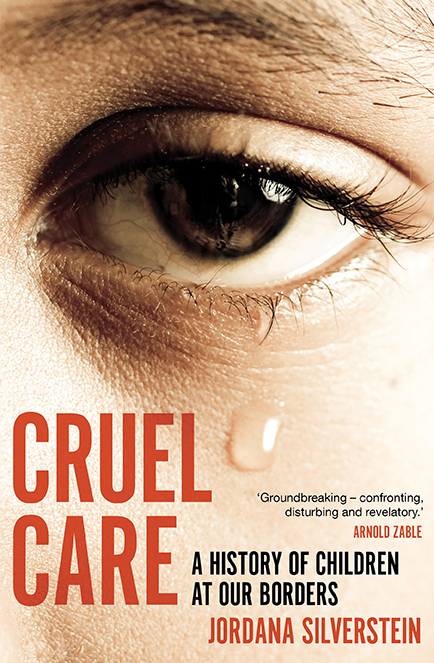Cruel Care: A history of children at our borders
Monash University Publishing, $34.99 pb, 309 pp
How could we do this?
The historian Jordana Silverstein’s masterful new book, Cruel Care, begins with an account of the Murugappan family. Many Australians will remember this family: the hard-working parents seeking asylum from Sri Lanka, and their two Australian-born children, taken from their home in Biloela by the Australian government at five o’clock one morning in 2018. The family was detained for four years in Melbourne and Perth and on Christmas Island. The case was so drawn out that, in the rare photographs released to the public, we saw the children growing up. Their treatment was illogical, unjust, unkind, and expensive, and provoked a sharp emotional response from the public.
Silverstein poses a question that many Australians have asked over three decades of Australia’s harsh asylum policies. We asked the question in the 1990s, when the length of time children spent in detention expanded inexplicably. We asked it again in the early 2000s, when the rescued passengers of the MV Tampa, including children, were sent to Nauru and Papua New Guinea. We celebrated the release of children from detention in the mid-2000s but then once again questioned our humanity when hundreds of children were sent to Nauru in 2012 and 2013. We asked the question when we learned from the Guardian’s Nauru files that over half of the leaked incident reports related to children, and when we heard of the thirty children who, after years of the violence of detention, succumbed to resignation syndrome and gave up on life; and when we added up the millions of dollars the government spent in legal fees fighting their applications for treatment in Australian hospitals.
How could Australia do this to children? More specifically, how could our politicians and policymakers do this to children? Silverstein’s book considers these questions, and offers two answers.
Continue reading for only $10 per month. Subscribe and gain full access to Australian Book Review. Already a subscriber? Sign in. If you need assistance, feel free to contact us.












Leave a comment
If you are an ABR subscriber, you will need to sign in to post a comment.
If you have forgotten your sign in details, or if you receive an error message when trying to submit your comment, please email your comment (and the name of the article to which it relates) to ABR Comments. We will review your comment and, subject to approval, we will post it under your name.
Please note that all comments must be approved by ABR and comply with our Terms & Conditions.